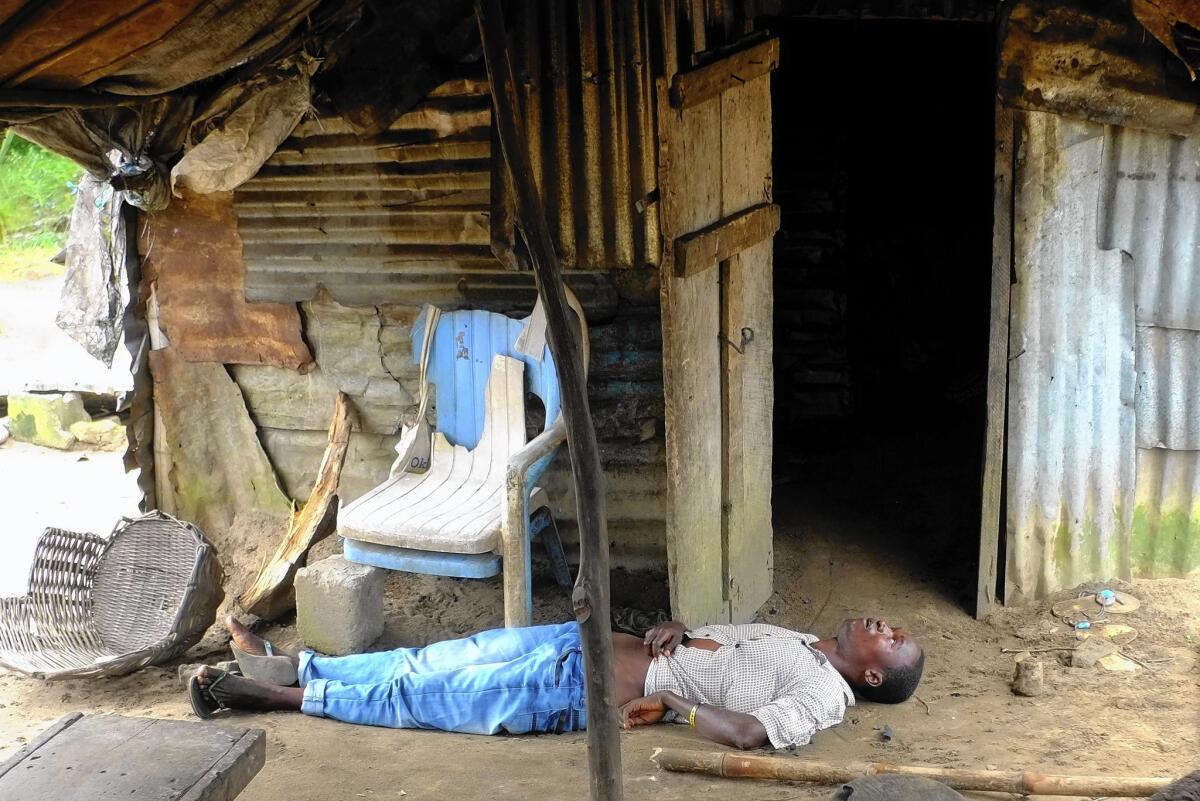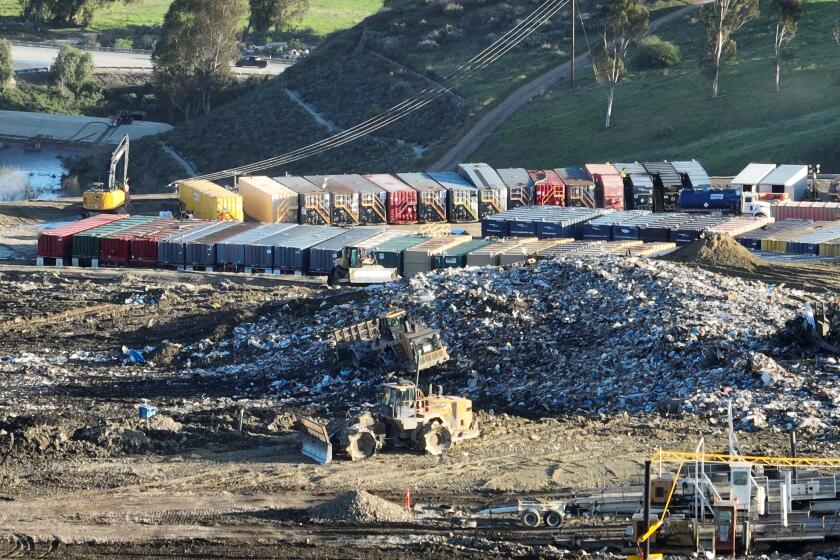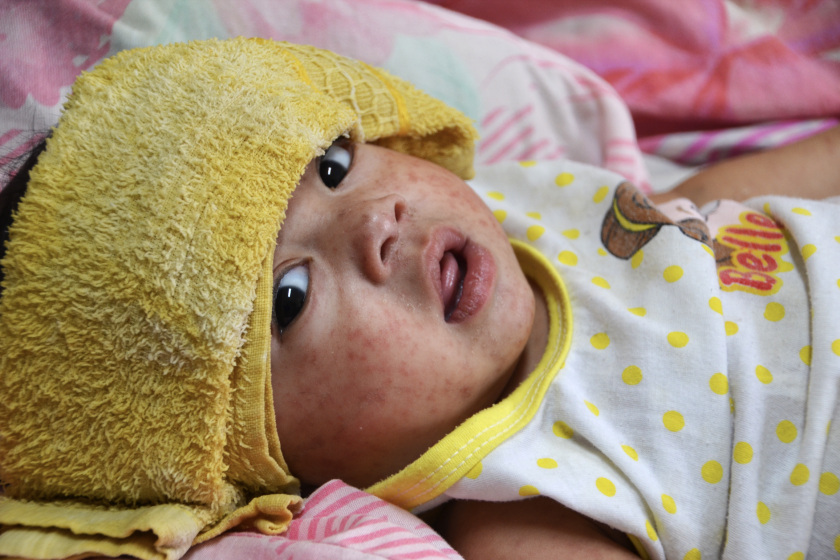WHO endorses blood transfusions to combat Ebola, despite skepticism

- Share via
As medical researchers struggle to produce desperately needed drugs to fight the Ebola outbreak, the World Health Organization on Friday endorsed an old-school remedy that is already abundant in Africa — the blood of people who have survived infection.
Health officials acknowledged that their support for blood transfusions was motivated by emotion as well as by science. Limited quantities of a tested vaccine will not be available until November at the earliest, and stocks of experimental drugs such as ZMapp may not be ready until next year.
“One of the things driving fear and panic in communities ... is the belief that there is no treatment for Ebola virus disease,” said Marie-Paule Kieny, an assistant director-general at the United Nations’ health agency. “We have to change the sense that there is no hope.”
But to others, the move looked more like an act of desperation than a decision based on clinical evidence.
“It’s an unproven therapy,” said Dr. William Schaffner, an infectious disease specialist and professor at Vanderbilt University in Nashville. “It ought to be evaluated critically before we start investing huge amounts of money.”
The concept behind the transfusions is simple: The blood plasma of people who have recovered from Ebola contains antibodies that were successful in fighting off the virus. If these antibodies are pumped into an infected person, they might help the recipient fight the disease as well.
Such transfusions were used to fight illnesses before the advent of antibiotics and vaccines. The German surgeon Emil von Behring first used blood serum to treat diphtheria in 1890 and was awarded a Nobel Prize for his discovery. The technique was expanded to treat many other infectious diseases, such as scarlet fever and measles, before it fell out of favor.
Its effectiveness in fighting the Ebola virus is a matter of debate.
Transfusions were used to treat a small number of patients during the 1995 Kikwit Ebola outbreak in Zaire, now known as the Democratic Republic of Congo, according to Dr. Oyewale Tomori, a professor of virology at Redeemer’s University in Nigeria. A study published in the Journal of Infectious Diseases after the outbreak reported that eight patients received transfusions, and only one of them died.
“The reason for this low fatality rate remains to be explained,” the researchers wrote. The blood transfusions may not have been responsible for their recovery, they noted: “The transfused patients did receive better care than those in the initial phase of the epidemic.”
Transfusion techniques have improved since then, Tomori said. The method has already been used in the current outbreak, which began in March and has sickened at least 3,967 people and killed at least 2,105, according to the WHO.
Dr. Kent Brantly, an American aid worker who was infected with Ebola in Liberia, was given blood serum from a boy who survived an Ebola infection. He and fellow aid worker Nancy Writebol also received the drug ZMapp. The two were evacuated to Emory University Hospital in Atlanta, where they both made a full recovery.
Ebola is spread by contact with the bodily fluids of infected individuals. Once in the bloodstream, the virus enters cells and begins to replicate itself, damaging blood vessels and organs in the process. Symptoms begin to appear two to 21 days after infection and include fever, diarrhea, vomiting, aches and bleeding. In the current outbreak, the odds of survival are slightly below 50%.
Kieny said the use of blood transfusions was the topic of intense discussions this week during a WHO-sponsored conference of more than 200 health and pharmaceutical experts. They were meeting in Geneva to weigh the deployment of up to 10 Ebola drugs that are now under development, including two experimental vaccines.
“There was a consensus that this has a good chance to work, but also that this is something that can be produced now from the affected countries themselves,” Kieny said.
That doesn’t mean transfusions can begin immediately, she added. The international community needs to help hard-hit West African nations including Guinea, Sierra Leone and Liberia build the capacity to safely draw blood, type it to make sure donors and recipients are compatible, remove the red blood cells from the antibody-containing serum, store the serum properly and then deliver it to patients using proper equipment. Blood should also be screened to make sure the transfusions would not spread other diseases, such as HIV.
“All efforts must be invested into helping affected countries,” Kieny said. “This should be done as a priority ... so that this procedure can be put at play as soon as possible.”
Schaffner, who did not attend the conference, said he was surprised that the WHO would make transfusions a priority in the ongoing crisis because they are labor-intensive, making it difficult to serve a large number of patients.
“You can’t do this en masse,” Schaffner said. “This is going to be a desperate attempt to provide something for a relatively small number of patients.”
Finding suitable donors may also prove more challenging than WHO officials expect, he warned. Malnutrition and other health concerns could make it more difficult to draw blood from people.
“These are people who have recovered from Ebola,” Schaffner said. “When are they hale and hearty enough to actually do a donation?”
Even as Kieny and others said transfusion treatments should be made a priority, they also reiterated that the epidemic would only come to an end through time-tested public health practices: isolating those who were infected, identifying those they had come
into contact with, and providing supportive care to the sick.
“The results of drugs, the results of vaccines will come, but we cannot wait for that,” Tomori said. “Action must be taken now to employ infection control.”
Twitter: @montemorin







